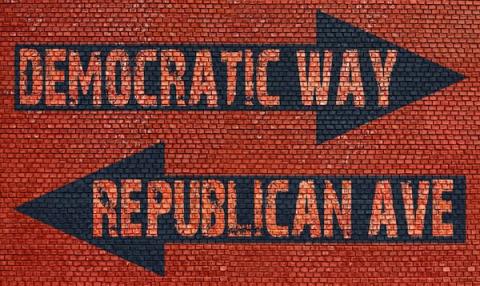The election process has a direct impact on the outcome of any election. Those setting the rules can determine what outcomes are more likely.
In our first-past-the-post, majority-wins system, whoever gets the most votes in a district gets the chair. This gets a little insidious when considering the gerrymandering phenomena: the selective redrawing of districts, and, therefore, the redrawing of who gets elected.
A popular complaint of gerrymandering is the tendency for partisan politics to interfere with redistricting. This infographic explains the GOP's current control of the House despite less overall votes. With districts being drawn to favor one party over another, many "races" are over before they begin.This exercise contradicts the exercise of representative government as outlined in the constitution, "[Congress] should be in miniature an exact portrait of the people at large." John Adams 1776
The first-past-the-post system is flawed for this reason. Any candidate who wins 51 percent of a district's vote ends up representing 100 percent of the voters. In a nation where reelection campaigns are more fruitful than making laws, partisanship continues to be a driving force in America's election cycle.
Source: Fairvote.org

